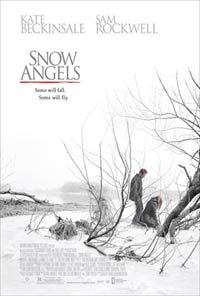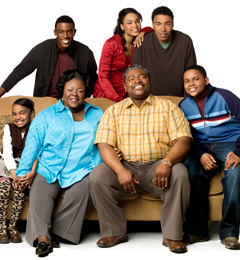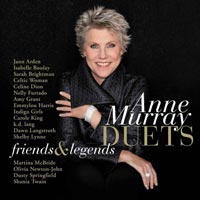 Warning: This review contains spoilers.
Warning: This review contains spoilers.
Halfway through watching “Snow Angels,” I began asking myself, “When is this movie going to end?” My listlessness foreshadowed my feelings when I walked out of the theater: bewildered, numbed, and absolutely depressed.
Based on the novel by Stewart O’Nan, the film adaptation of “Snow Angels” centers on an unnamed, small, snow-covered town where several stories intersect: Annie (Kate Beckinsale) and Glenn (Sam Rockwell) are high school sweethearts who become estranged after marriage. After Annie leaves Glenn, he drives his car off a bridge but survives the suicide attempt. While Annie takes care of their young daughter and works as a waitress at a Chinese restaurant, Glenn becomes a born-again Christian who cleans up his life by working at a carpet factory. Arthur (Michael Angarano, last seen in “The Final Season“) is a high school loner who finds himself attracted to a quirky girl named Lila (Olivia Thirlby, last seen in “Juno“). At the same time, his parents are going through a separation. He also works at the same Chinese restaurant as Annie, who is having an affair with the husband of her best friend, Barb (Amy Sedaris), another waitress at the restaurant.
Even though the movie also revolves around Arthur’s and Lila’s burgeoning relationship even as the relationships of the adults (Arthur’s parents, Glenn and Annie) around them fall apart, the powerful performances by Glenn and Annie usurp your attention. As portrayed by Sam Rockwell, known for playing off-kilter characters, Glenn is vulnerable and insecure, a bundle of nerves momentarily tempered by a Bible. Rockwell is brilliant in portraying Glenn as a wounded, hopeful puppy who eventually becomes a rabid, destroyed dog; his closeted alcoholic anger unleashes itself once he discovers Annie’s affair. As portrayed by Kate Beckinsale, Annie is steely and brittle, a beautiful but worn-down woman with simmering anger and a weakness for losers. Annie makes terrible decisions and her irrational temper is a catalyst for the eventual tragedy that falls upon her and Glenn.
Despite being able to talk the talk, Glenn can’t quite walk the walk; his faith can’t fully buoy him above his internal demons and his constant struggle to forgive Annie for leaving him. In one disturbing scene, Glenn punishes himself by punching a tree and banging his head on a car door; then, he gets down on his knees to pray in the snow, with bloody hands uplifted, a strange and mentally unstable messiah. Once his daughter dies, he reaches the point of no return. He becomes a man caught between his faith and his fury; he can’t separate the two so he combines them with a peculiar fervor. At the same time he calmly holds Annie hostage with a shotgun, he takes care to bathe her feet in the same way Jesus humbled himself by bathing the feet of his disciples. Ironically, in an early scene when Glenn is praying with his daughter, he asks that his “actions and intentions” be honorable to Jesus. While Glenn’s messianic action is honorable, his action to kill Annie is not.
The Glenn-Annie storyline overshadows the film to the point that the dark ending leaves one feeling shocked and overwhelmed. I felt disconnected from the film and alienated from the characters. Instead, I was fascinated more by the lingering nature shots than the separate story lines that didn’t transition well into each other. Often, the stories seemed to be unevenly spliced together to create connection and melodrama.
In the end, I felt hopeless even though I should have felt hopeful for Arthur and his parents who were moving forward positively. The redemption Arthur and his parents found couldn’t compare to the redemption that Glenn and Annie lost. For a movie with a tagline that reads “Some will fall. Some will fly.”, the focus is more on the “fall” than the “fly.” Yes, soft snowflakes swirl around the town at the end, covering the remaining characters—the angels left to fly—in a gentle baptismal beauty, but the memories of the angels that did fall still remain frozen and hard to forget.


